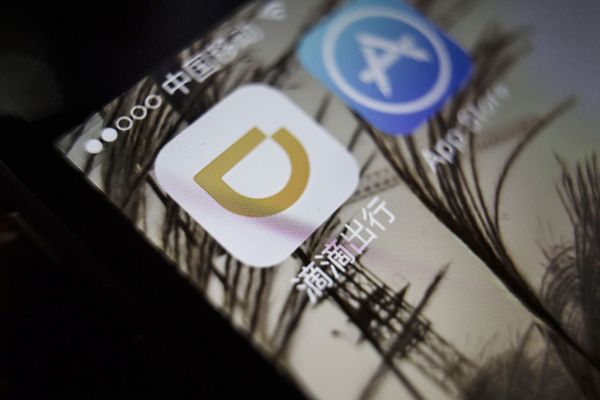China’s Didi Chuxing, the country’s top ride-hailing company, said today that it has raised $4 billion in new capital to support a range of new initiatives including international expansion.
The company has already raised $13 billion from investors that include Alibaba, Tencent and Apple, and it said that this newest round will go towards developing its artificial intelligence technology, as well as international expansion and green vehicle initiative.
The names of the investors in the round were not disclosed. In a very brief statement announcing the funding, Didi said that “Chinese and international institutions joined the latest fundraising round.” That, for one, implies that a number of existing investors took part but, at this point, that list of investors is pretty extensive so even that doesn’t narrow things down.
A source close to Didi confirmed that both (existing investor) SoftBank and Abu Dhabi state fund Mubadala Capital were among the investors — as had been reported by The Wall Street Journal.
We understand that the investment gives Didi a valuation of $56 billion, a jump on the $50 billion valuation in April when it closed $5.5 billion in fresh investment.
Interestingly, that valuation is likely higher than Uber’s most recent/ongoing round. While the U.S. firm is estimated to valued at between $68 billion and $70 billion, SoftBank’s recent invest came at a reported discount of 30 percent. Valuations are, of course, fluctuating, but you can imagine that Didi will crack a wry smile at the milestone at the very least.
Didi is China’s ride-hailing leader by some margin courtesy of its acquisition of Uber’s China business. That deal was announced more than a year ago but is still pending full approval before its completion.
Didi has invested heavily in AI for its ride-hailing service. The company opened an AI research lab in the U.S. earlier this year having made a pair of significant hires in the AI and security space in 2016.
To date, Didi remains a China-only business although it has expanded its network globally through investments in companies that rival Uber across the world, including the U.S. (Lyft), Latin America, Europe (Taxify), the Middle East (Careem), India (Ola) and Southeast Asia (Grab).
It seems like an actual physical expansion may come soon, but there are mixed messages about where precisely that might be.
Earlier this month, Didi was linked with an expansion to Mexico while this week Bloomberg reported that it is eying a move into Taiwan using a ‘franchise model.’ Didi itself refused to comment on both reports at the time.
On the electric vehicle front, the firm said in November that it will build its own charging network in China in partnership with the United Nations and the Global Energy Interconnection Development and Cooperation Organization (GEIDCO).
Didi claims to operate the world’s largest fleet of electric cars. Out of the two million electric vehicles currently on the road in China, more than 260,000 are on its platform, it said, which overall has 450 million users and 21 million drivers, and includes a ride-hailing app, as well as taxi, minibus and car rental services. The company’s goal is to increase that amount to one million electric vehicles by 2020.
